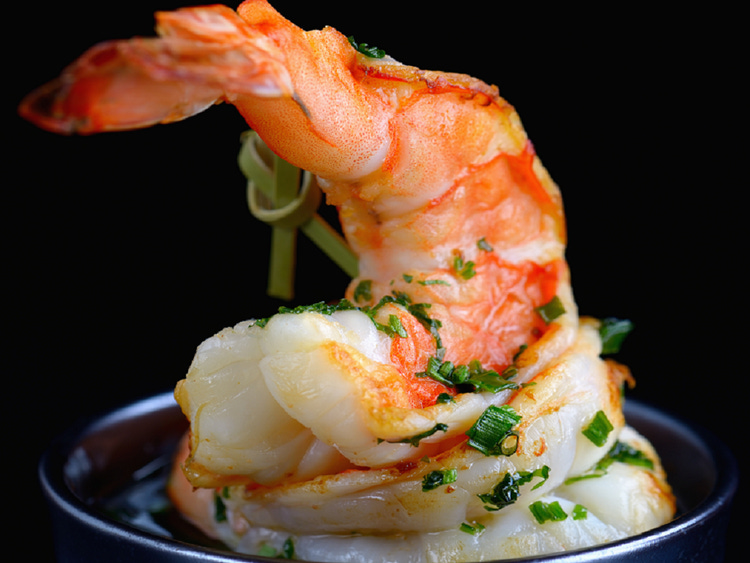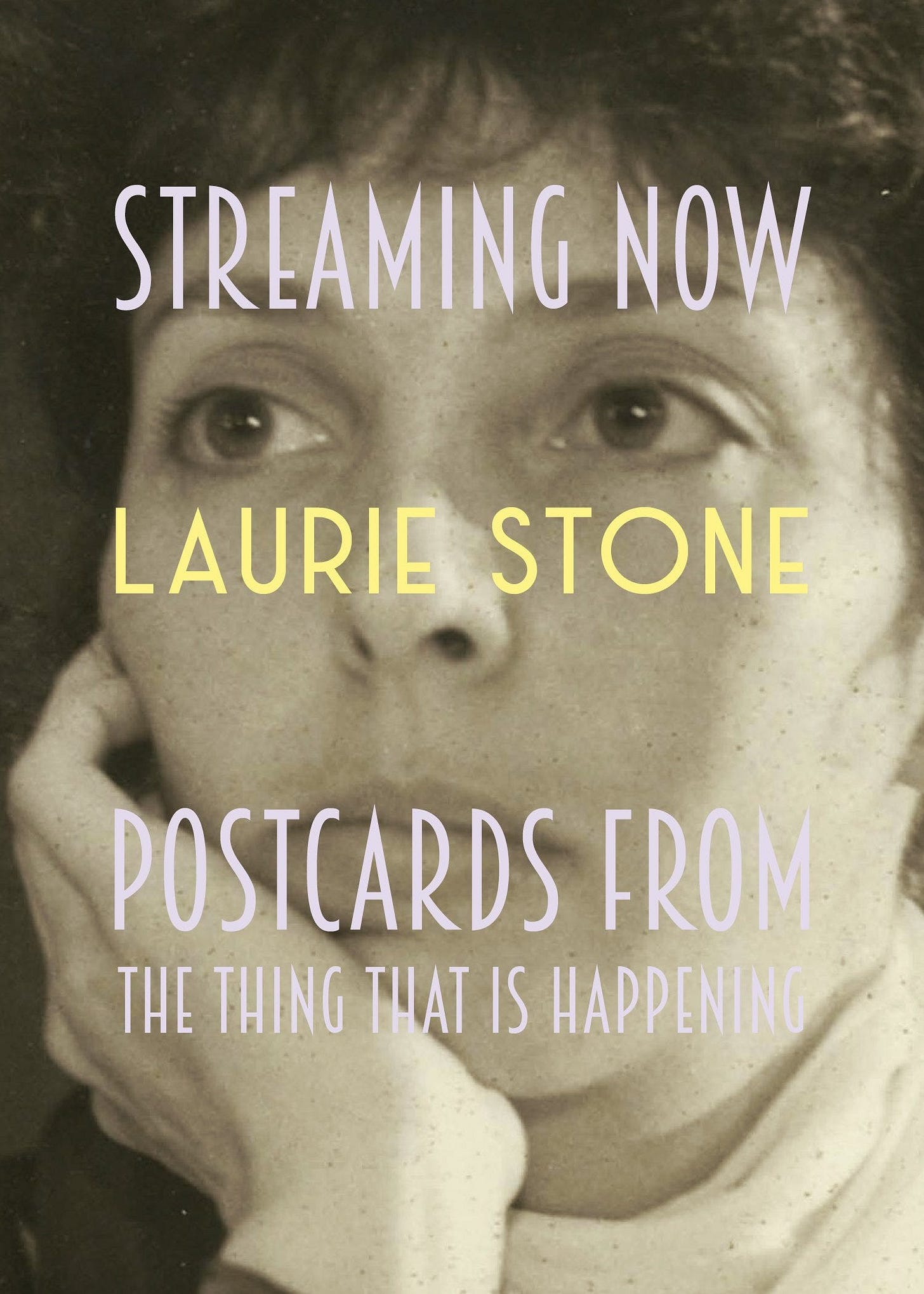
There are people you tell you do service work, and they get the look of a groundhog come out from under your house, and they look up and say, “I could never do service work.” If you’ve seen the show Party Down, you may understand the melancholy and comic appeal of banding together with a crew of fugitives from their lives. Every party is Hamlet, and you and the other servers are not watching the play. You’re Rosencrantz and Guildenstern, holding hands in the wings and eating as many cheese puffs as you place on the trays. You are waiting for the Danish prince to finish up his plot of revenge, and you are forgetting, in the whirl of movement, that you, too, are going to die.
I started catering in 1999, at age 53, soon after being fired from the Village Voice. In 1999, I spoke on the record about unfair pay cuts at the Voice to a reporter from New York Press, and because I’m an idiot and have never learned to read a room, I was surprised the next day to find myself dismissed. New York Press intentionally looked for dirt on the Voice, and Russ Smith, the founder of New York Press, was a political conservative, I learned. I didn’t know it at the time. I should have known, but I didn’t know I was being used. Don Forst, then-editor of the Voice, and his pit bull deputy Doug Simmons were fogging the office with the sweaty tang of jock straps. It had become that kind of locker room, and soon the heads of most of the people I had known at the paper would one by one roll behind mine. The day I was fired, I felt like I’d been shot. I also felt nothing, as people say who are actually shot. I had been at the paper for 25 years. I will always be a Voice writer.
The other day, I was walking down the small hill behind our house in Hudson, and I realized how much in shock I’d been at the time, how hurt and ashamed. After I was fired, I hatched the plan of becoming a cater-waiter. I can’t explain why. It had something to do with using my body instead of my mind. I was setting up writing workshops and residencies at colleges and art centers. Honestly, I don’t know why I made this decision, and something else I can tell you from the vantage point of now is I don’t look for reasons why I did anything. I don’t care why.
I thought I would quit catering once I stabilized my life after the Voice. I didn’t stabilize my life after the Voice, and I didn’t quit catering. Working in a team was what I missed most about the Voice. While I was catering—working for companies and cooking for private clients—I was also writing books, writing columns, and teaching writing. Most people in catering have more than one life. Together, we produce the possibility of pleasure.
We are every age, from every part of the world, with every skin color, speaking every language, expressing every sexuality. I love the lobster salad spooned into cucumber hulls, the smoked salmon on miniature corn muffins, finished with a frond of dill. There is caviar everywhere and shrimp as big as your fist. Most waiters are thin. Many are actors and models, so they have to be. On jobs, you burn calories, hauling heavy tables and ice, walking miles carrying platters and plates. During the breakdown of a big party, thousands of glasses have to be slopped and placed in lugs, which grow heavier with every champagne flute and wine tulip added. Catering isn't like serving tables in a restaurant. It's closer to building a circus environment and then tearing it down.
The things I do now are pretty much the things I’ve done most of my life. The change is feeling less risk at 76. I don’t know quite what I’m saying. I’ll tell you a story about me at 53.
It’s a drizzly day in April, and I head to a job feeling good. You never know ahead of time the party you are going to cater. I arrive at Lincoln Center, wearing my tuxedo and the red and silver tie that is the emblem of the company I work for. I move swiftly across the Lincoln Center piazza. The slick paving stones reflect the gray sky. It’s four o'clock. I arrive at the New York State Theater to discover the party is for PEN, the writers’ organization I belong to.
I cannot serve the guests at this party. I have to serve the guests at this party. If I were in the woods with Hansel and Gretel, and we came to the gingerbread house, I would be the one to say, “Let’s go in. What can it hurt?”
The captain says, “You don’t have to do this. You can work in the kitchen.” He means behind the screens. He’s an opera singer, and he doesn’t work parties at the Met. I say, “I’m okay,” and he shoots me a look that says, “You’re not okay.” By the time I turn back to the room, the place cards have been set on the tables. I know dozens of people. Writers whose books I’ve reviewed and writers who have reviewed my books. People I’ve had sex with and like. People I’ve had sex with and don’t like. No one I know is at the table I’ve been assigned, but at the table beside mine is the editor of my last book. What will I say if people see me? How can they not see me?
To work the party feels like a dare, and looking back, that’s the rub. I’m not under cover, after all, and catering isn’t a secret society. Who am I not to work the party? Who am I to care so much about how I’m seen? Looking back, I see a person who is self-important for thinking it’s a big deal to be unimportant.
I take to crossing the large space along the balcony, trying to be invisible. But one time I decide to snake through the tables, wanting to see who’s there and be less afraid. What am I afraid of? I mean I’m the person who doesn't believe in secrets. I think there’s nothing you can't talk about if you understand the story. But I don’t understand the story. What is the story? To hell with the story.
I’m moving along a narrow space from the back of the room toward the balcony when Stanley Crouch appears. Stanley and I know each other from his years at the Voice. His back is to me, and his large body is blocking the way. I tap his shoulder and say “Stanley,” and he whips around and lifts me into the air. Our faces are this close, and all he sees is my smile and dark curls. If he’s taken in what I’m wearing, maybe he thinks it’s some kind of masculine chic. Behind him I see someone else I know, and as Stanley lowers me to the floor, I point to my tux and say, “I'm working here.” I’m smiling. There is some kind of smile on my face as I look at the confusion around me, and now I am naked in the dream where everyone else is dressed.
After the guests are all gone, and the crew is eating, the captain asks me how things went, and I say, “I unraveled,” and he says, “What did you expect?” And I don’t have an answer.
It will happen other times over the years. I’ll be carrying a tray, and someone I know from the writing world will pretend they don’t see me. I think it’s because I represent failure to them and they are embarrassed for me. I thought this until I told the story of the PEN party to Richard, and he said, “You didn’t represent failure. You represented confusion. Most people would pick a side. Either be a writer and hang out with the writers, if you can, or, if you can’t, then leave the place where the writers are and make common cause with the workers. Laugh about the guests and not care about anything else while you’re on the job. You were a fork in the wrong place at the table. You were out of place. That’s why you made people uncomfortable. You have no understanding of boundaries.”
When he said this, I thought he was right, and it struck me the secret of a mistake is in the ways it is also not a mistake. Have you ever thought you lived in a place when you were only passing through it? Or thought you were a visitor in the place where you lived? Sometimes, in the garden of forking paths, you move past the possibility of return, and you don’t care.
That’s what I mean about the stakes being different now. A moment ago, I said to Richard, “The difference between me at 53 and me now is, if I arrived at a dinner for PEN, I would stay behind the screens.” I meant I would choose to stir less confusion. I meant I understood there isn’t always a way to be in two places at the same time.
A few months ago, a woman emailed to ask if I would cater her daughter’s bat mitzvah. I thought she was asking me to the prom. Richard said, “Leave me out of it. It’s your own funeral.” He was going to take a walk in the city while the party took place, but he didn’t take a walk, because he always helps me out. Part of the way we are a couple is also the way we are caterers, which is to step into another person’s sense of pleasure you will never understand.










This was so good. Being “a fork in the wrong place at the table” is such an apt description. Did it only make others uncomfortable or more so you?
I can clearly answer that question for myself. My “stifling awkwardness” in those situations superseded anyone else’s. It was so deafening in my own ears, there was no room to record anyone else’s experience. But at the end of the day, all you have is your own experience, and that becomes your reality.
I’m sorry you went through this after a 25 year career, but it sounds like you truly turned a maddening situation into a creative and beautiful one. That’s a hard road. Good job!
I really liked this, Laurie. I wish more writers would write about the side gigs that sustain them (aside from teaching). It provides a service in so many ways -- to let other writers they are not alone in having to string together multiple functions, but also to provide a writer's gaze into a specific job.
Also, hello from a former student!